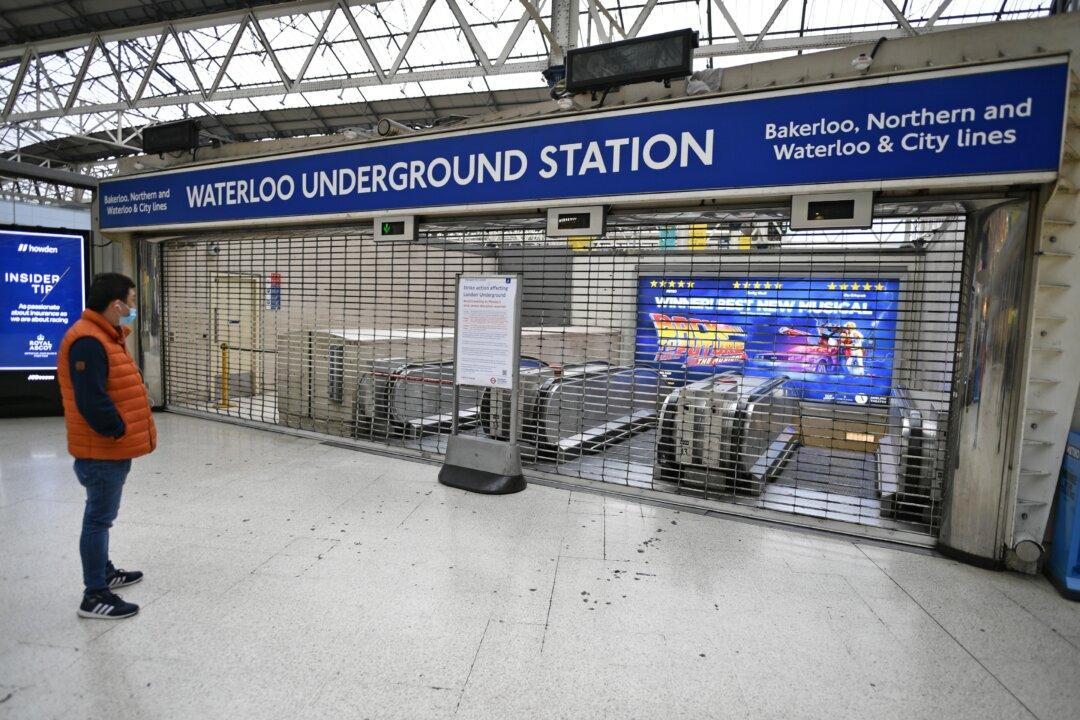The UK government has condemned strike action that is causing major disruption on London’s Underground network.
On Monday, the first working day after the Platinum Jubilee bank holiday period, London’s transport network has suffered from severe disruption after 4,000 members of the Rail, Maritime, and Transport (RMT) union who work at Tube stations started a 24-hour walkout.





